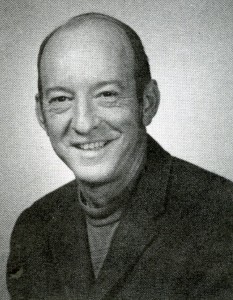James G. Morgan. Into New Territory: American Historians and the Concept of US Imperialism. Madison: University of Wisconsin Press, 2014. 268 pp.
Review by Andrew Seal
This book will most interest readers of William Appleman Williams and intellectual historians of the New Left, of the 1960s, and of Madison, Wisconsin. The last item there may sound too specialized, but Into New Territory joins a number of recent excellent monographs about the city, including David S. Brown’s Beyond the Frontier (the center of gravity of which is Madison); Paul Buhle’s edited collection of memoirs History and the New Left; Matthew Levin’s Cold War University; and Randall Davidson’s 9XM Talking: WHA Radio and the Wisconsin Idea. The University of Wisconsin is better than any other U.S. university at keeping alive its greatest legacies, and in publishing this book in their distinguished series, Studies in American Thought and Culture, the University of Wisconsin Press furthers that effort of curation and celebration of Madison’s past.
 That said, this book does perhaps deserve the title “specialist”—provided that term is not used pejoratively. For while Morgan reaches back as far as Lenin and Hobson in the early twentieth century, and Charles Beard and Scott Nearing further in, he does so merely to set the stage for Williams. Beard functions as an influence, Lenin as an antithesis, Hobson and Nearing somewhere between. Similarly, Morgan takes us beyond Williams, but only to separate those who followed up on Williams’s insights correctly—the Wisconsin School of Thomas McCormick, Walter LaFeber, and Lloyd Gardner—from those who, according to Morgan, went off the rails—New Left figures such as David Horowitz, Harry Magdoff, and Gabriel Kolko.
That said, this book does perhaps deserve the title “specialist”—provided that term is not used pejoratively. For while Morgan reaches back as far as Lenin and Hobson in the early twentieth century, and Charles Beard and Scott Nearing further in, he does so merely to set the stage for Williams. Beard functions as an influence, Lenin as an antithesis, Hobson and Nearing somewhere between. Similarly, Morgan takes us beyond Williams, but only to separate those who followed up on Williams’s insights correctly—the Wisconsin School of Thomas McCormick, Walter LaFeber, and Lloyd Gardner—from those who, according to Morgan, went off the rails—New Left figures such as David Horowitz, Harry Magdoff, and Gabriel Kolko.
The gravamen of the book, in fact, is the separation of Williams from the New Left. Williams’s critique of imperialism was reformist, allowing for contingency and improvement by reasoned argument, Morgan argues, while the New Left’s critique was revolutionary, determinist and uninterested in peaceful debate. This stark distinction is reiterated throughout the book; in some ways, it is the book. “Williams’s critique differed from the New Left interpretation because he attributed US imperialism to intellectual failures rather than the expansionist nature of capitalism… Whereas the energetic and passionate young dissidents who opposed the Vietnam War often protested in a vociferous and mutinous manner, Williams reacted in a more measured and philosophical way” (Morgan 32). More than anything, though, the New Left was intrinsically Marxist, Morgan insists, while Williams was definitively not.
Morgan’s draws his characterization of the New Left from pamphlets and newspaper coverage of New Left groups in late 60s Madison, a turbulent time with heated rhetoric. Morgan’s footnotes reveal familiarity with a broader historiography on the New Left, but he leans on the most violent language he found in Madison and the most extreme of the campus confrontations there to characterize the whole New Left and deny it any kind of internal diversity. For Morgan, the New Left was utterly different from the native Wisconsinite progressive critique, and served merely to corrupt that more high-minded tradition: “By embracing Marxism-Leninism (because it was the obvious radical ideology at hand), UW students accepted a simplistic critique of US imperialism and repudiated the far more sophisticated interpretation that emerged from their own history department” (171). That sense of ‘native’ and ‘foreign’ embroiders on an old trope from some Wisconsonites who resented the out-of-state lefties and red-diaper-babies that attended UW across mid-century, drawn by its reputation for tolerance of dissent.
But even if Morgan’s characterization of the New Left is both monolithic and a little nativist, the idea that Williams should absolutely not be considered a New Left scholar strikes this reader as a little off-kilter: both a little wrong and a little beside the point. Numerous scholars have shown conclusively Williams’s influence on many influential New Left figures, a fact which Morgan does not attempt to deny but which he does try to minimize.
For Morgan, Studies on the Left, the vital journal founded in Madison under the patronage of Williams, for instance, cannot be a true inheritor of Williams’s mantle because it reached outside the Wisconsin tradition and eventually decamped for New York (77-78).
Morgan is less concerned, though, with downplaying Williams’s influence on the New Left than he is with correcting any insinuation that the line of influence ran the other way. Morgan repeatedly brandishes a quote from John Lewis Gaddis grouping Williams as a “New Left scholar” as if it constituted a kind of obscene slur. The hothouse intellectual environment of Madison in the late 1950s and early 1960s was intricate enough that strict attributions of influence and assertions of its directionality are questionable at best, but many accounts from that period indicate that Martin Sklar—a graduate student and one of the original writers of Studies on the Left—provided some of the key insights that undergirded Williams’s analyses in the 1960s. Morgan does not acknowledge this; Sklar does not even appear in the book.
The reason—one of the two reasons—why I think Morgan so thoroughly shuns the possibility that “New Left” in any way could or even should characterize Williams’s work is his exceedingly dim view of the New Left’s effectiveness. “[T]he New Left squandered the opportunity Vietnam gave them to change perceptions of America’s global role,” he writes, “[while] the Wisconsin scholars, by developing a critique that repudiated Marxism and crude economic determinism, demonstrated that the study of empire wasn’t just for communists and those who sought to inspire revolution” (213).
The second reason why Morgan believes he must rescue Williams from the charge of being a “New Left scholar” is because he identifies the New Left exclusively with Marxism. Morgan is absolutely certain that Williams was not a Marxist, but it is here that he is on shakiest ground. Morgan writes about only three of Williams’s books—The Tragedy of American Diplomacy (1959), The Contours of American History (1961), and The Roots of Modern American Empire (1969). Left out are Williams’s late masterpiece Empire as a Way of Life (1980) and, more critically, The Great Evasion: An Essay on the Contemporary Relevance of Karl Marx and on the Wisdom of Admitting the Heretic into the Dialogue about America’s Future (1964).
The latter, little-read book is a revelation: Williams comes through as a sort of Western Marxist, heterodox but deeply in tune with Marx’s spirit. And it shows that on certain key questions—the inevitability of capitalism to expand to the point of Great Power competition and war, for instance—Morgan is wrong to assert that Williams contradicted or disbelieved Marxist theories about imperialism.
Morgan raises absolutely crucial questions for the further study of Williams’s work and many important questions about the New Left. How much Marx was in Williams, or in the New Left? How much determinism (not the same thing as Marxism) underwrote their analyses? If we’re going to use categories like ‘native’ and ‘foreign’ influences, how should we consider their interaction? In what ways did the paths of influence between Williams’s older generation of scholars and the New Left actually move? This book does a great service and a fine job focusing these inquiries, but would have benefited greatly from an engagement with some of the pertinent sources it overlooked.


3 Thoughts on this Post
S-USIH Comment Policy
We ask that those who participate in the discussions generated in the Comments section do so with the same decorum as they would in any other academic setting or context. Since the USIH bloggers write under our real names, we would prefer that our commenters also identify themselves by their real name. As our primary goal is to stimulate and engage in fruitful and productive discussion, ad hominem attacks (personal or professional), unnecessary insults, and/or mean-spiritedness have no place in the USIH Blog’s Comments section. Therefore, we reserve the right to remove any comments that contain any of the above and/or are not intended to further the discussion of the topic of the post. We welcome suggestions for corrections to any of our posts. As the official blog of the Society of US Intellectual History, we hope to foster a diverse community of scholars and readers who engage with one another in discussions of US intellectual history, broadly understood.
I think James Morgan is dead on about several things, including the trajectory of Studies on the Left. After one or two issues it became a narrowly ideological platform for those who really were not much interested in scholarship as opposed to an unrealistic agenda.
How much Marty Sklar influenced Williams’ work is an interesting question – as is how much Williams influenced Sklar. When I got to Madison Marty was engaged in a debate with Howard Beale about economic causes of the War of 1898. It was pretty straightforward in Marty’s mind. I think that what Bill did was influence him to look beyond the pocketbook into the minds of policymakers.
Kit Lasch once asked in a review of one of Bill’s books whether there was any room for contingency or choice in his work. Perhaps the answer can be found in some of the books he read, because he chose from a great variety, GDH Cole, British sociologists, Veblen, etc. And I think he changed his mind from day-to-day about contingency and choice.
At the end of his life he was engaged with Raymond Williams’ “Culture and Society,” William Carlos Williams (he did like his fellow Welshmen!) and Gore Vidal.
Dr. Gardner, thank you so much for reading and replying. I especially appreciate your memories of Williams’s reading, which I’m glad to say chime with hints of influences I’ve picked up in reading him (though Vidal was a surprise!).
I would like to put in a word for Studies on the Left, however: the editorial tone may have grown more political after the first couple issues, but it continued publishing strong and significant scholarship throughout its run, for instance Genovese’s important essay on Gramsci in 1967, its last year of publication. Certainly the later issues could not match the earliest issues for scholarly brilliance and intensity, but I feel that the whole run merits consideration and study.
Andy,
Please don’t forget the influences on Williams from the people at Wisconsin when he was a student. Those who carried on the tradition of Beard and Turner.
Merrill Jensen, the colonial historian who defended the Articles of Confederation, and who influenced Williams toward local communities vis-a-vis the monolithic state.
Bill Hesseltine, the historian of the South, from whom Williams took much about the conservative sense of responsibility for the community.
Fred Harrington, the master of putting together a mosaic of how special interests influence the whole.
Hence Vidal, and William Carlos Williams on Burr vs Jefferson – and the larger meaning of that antagonism.